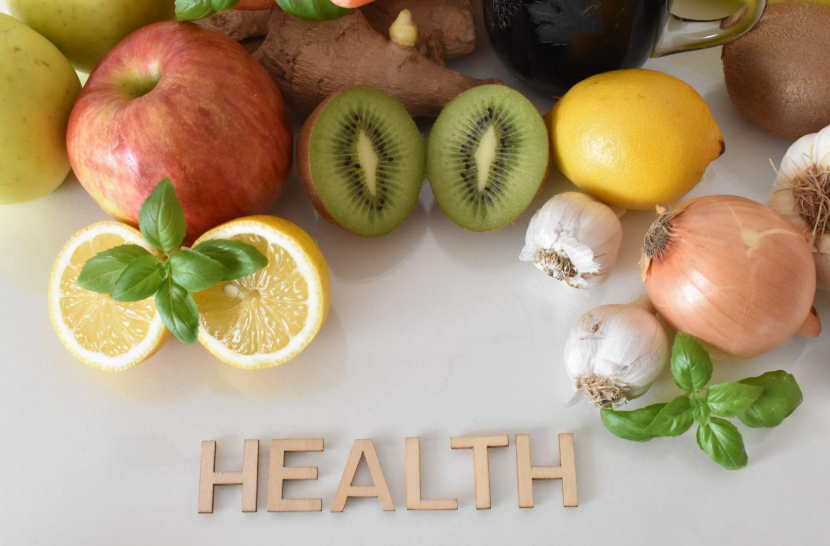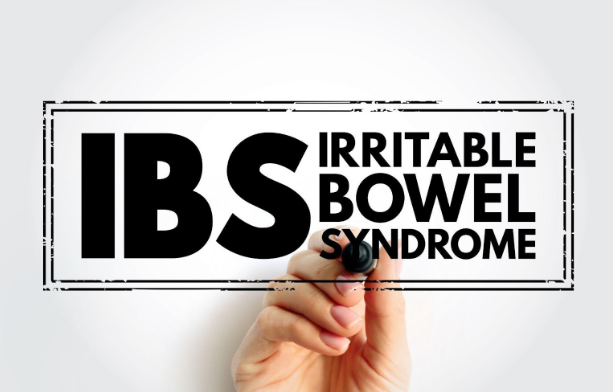Seasonal Fruits and Vegetables for Gut Health with the Best Summer Produce for Digestion

A healthy gut supports immune function, mood regulation, nutrient absorption, and inflammation control, among many other things. And during summer, your body needs hydration, antioxidants, and fiber-rich foods that keep your digestive system moving efficiently despite the heat.
Here's how to optimize your
gut health with seasonal fruits and vegetables that work in harmony with your microbiome.
Why Seasonal Eating Matters for Gut Health
Seasonal produce is harvested at peak ripeness, which means higher nutrient density, better taste, and fewer preservatives. These fresh fruits and vegetables are rich in soluble and insoluble fiber, essential for a thriving gut microbiota. Soluble fiber feeds beneficial bacteria, while insoluble fiber keeps your digestive tract running smoothly.
The Gut-Brain Axis and Summer Digestion
Your gut and brain communicate through the gut-brain axis—a network involving the vagus nerve, immune signals, and gut microbes. Summer heat and dehydration can disrupt this connection, leading to sluggish digestion and low energy.
Seasonal, fiber-rich produce supports gut bacteria that produce mood-regulating chemicals like serotonin and GABA. By eating hydrating, gut-friendly foods, you support digestion, reduce inflammation, and stay mentally sharp in the heat.
Best Summer Fruits That Support Gut Health and Digestion
During summer, increased outdoor activity and heat can impact your hydration and digestion. Fortunately, summer fruits and vegetables naturally contain higher water content, electrolytes, and plant compounds that regulate gut function. Here are some of the best fruits for your gut health this summer.
Berries (Strawberries, Blueberries, Raspberries)
Berries are rich in dietary fiber and antioxidants, making them excellent for gut health. They promote the growth of beneficial gut bacteria and aid in regular bowel movements. Incorporate them into your diet by adding them to yogurt, cereals, or enjoying them as a refreshing snack.
Watermelon
Composed of over 90% water, watermelon helps keep the body hydrated during hot summer months, which is crucial for digestion. Its high water content aids in preventing constipation and supports overall digestive function. Enjoy watermelon slices chilled or blend them into smoothies for a hydrating treat.
Mangoes
Mangoes are high in dietary fiber, promoting gut health and regularity. They are a great source of vitamin E, which helps keep skin and hair healthy. Antioxidants found in mangoes, such as quercetin and mangiferin, promote general health. Enjoy them fresh, in smoothies, or as a topping for salads.
Citrus Fruits (Oranges, Lemons, Grapefruits)
Citrus fruits are packed with vitamin C and soluble fiber, which aid digestion and support the immune system. They also contain flavonoids that promote a healthy gut microbiome. Add citrus fruits to salads, fresh juices, or enjoy them as a snack for a simple gut-friendly boost.
Papaya
Papaya contains enzymes like papain that break down proteins and improve gut function. It's also rich in fiber and water content, aiding in preventing constipation and promoting regularity.
Pineapple
Bromelain from pineapples lowers inflammation in the gut and aids in protein digestion. Recent studies show bromelain may also improve symptoms of IBS, especially when bloating or discomfort follows meals. Eat it fresh for the highest enzyme activity.
High-Fiber Summer Vegetables That Soothe and Regulate the Gut
Vegetables offer the structural fibers your body needs to clean the intestinal walls, build short-chain fatty acids (SCFAs), and regulate transit time. Summer vegetables are also lighter, less gassy, and easier to digest when cooked lightly.
Leafy Greens (Spinach, Kale)
Summer is the perfect time to add cruciferous vegetables and greens that promote microbial diversity and detoxification. They're best consumed lightly cooked if you’re sensitive to sulfur-rich compounds.As they are loaded with magnesium, which helps prevent constipation and relax the smooth muscles of the GI tract. They’re also high in chlorophyll, which supports gut detoxification and microbial balance.
Zucchini
It contains both soluble and insoluble fiber while being soft on the digestive tract. It’s low in FODMAPs, making it suitable for those with IBS. The skin is especially high in pectin, a fiber that supports beneficial bacteria.
Cucumbers
Composed of over 95% water, cucumbers also deliver notable amounts of silica, potassium, and vitamin K. While low in fiber, they offer excellent hydration and support mucous membrane health in the stomach and intestines. Eating them with the peel provides additional plant compounds that may lower gut inflammation.
Tomatoes
Tomatoes offer lycopene and some prebiotic fiber, potentially supporting the gut lining when eaten raw or gently cooked. While their acidity might cause issues for some, consuming them with olive oil can lessen gastrointestinal irritation and improve lycopene absorption.
Bell Peppers
Bell peppers are high in fiber, vitamins, and antioxidants, promoting gut health and reducing inflammation. They can be eaten raw, roasted, or added to various dishes for a crunchy texture and sweet flavor.
Arugula and Mustard Greens
Your digestive system releases bile when you eat these greens, which helps break down fat. The bitter taste is a signal to your body to prepare enzymes and digestive fluids, which can ease indigestion and bloating.
Avocados
The presence of substantial monounsaturated fats and soluble fiber in avocados contributes to a reduction in gut inflammation and promotes prolonged satiety. They also have potassium and magnesium, which are important in the summer when your body loses minerals through sweat. Add avocado to salads, wraps, or grain bowls for a creamy, gut-friendly boost.
Gut-Supporting Summer Herbs and Fermented Foods
What you pair with your fruits and vegetables matters. Herbs and fermented additions can elevate digestion and soothe inflammation.
Fresh Mint and Basil
Mint contains menthol, which helps relax the muscles in your intestines and can relieve spasms and cramping. It’s especially helpful when added to water during hot months. Basil has antibacterial effects and may help stop harmful bacteria from growing too much in your gut. It works well sprinkled over fresh dishes like tomato salads or pasta, giving you flavor and gut support at the same time.
Ginger
It has one of the best natural ways to reduce nausea and help your stomach empty more smoothly. It’s been shown to speed up digestion, reduce bloating, and stimulate the enzymes that break down food. Fresh ginger in smoothies, teas, or meals can keep your digestion on track—especially after large or heavy meals.
Fermented Vegetables
Foods like kimchi, sauerkraut, and fermented pickles are full of live bacteria that support your gut. These foods help increase the diversity of your gut microbiome, making it harder for harmful bacteria to thrive. Choose unpasteurized, raw versions with active cultures, and start with just one or two tablespoons a day to give your gut time to adjust.
Probiotic-Rich Summer Dairy and Dairy-Free Options
Cool, fermented foods are perfect for hot weather and can give your gut a healthy boost. Whether you eat dairy or not, there are probiotic-rich choices that support digestion and help balance gut bacteria.
Yogurt and Kefir
Both yogurt and kefir contain important probiotic strains like Lactobacillus and Bifidobacterium, which help support gut health and the immune system. Kefir usually has more strains than yogurt and is easier to digest because the fermentation process breaks down most of the lactose.
Choose plain, unsweetened options to avoid added sugars. If you’re dairy-free, coconut milk kefir is a great alternative with similar gut benefits.
How to Incorporate Summer Produce Into Your Daily Routine
With a few intentional habits, you can easily incorporate fresh fruits and vegetables into your meals, improving digestion, nutrient absorption, and overall wellness throughout the season. You can:
Shop with intention and variety
Visit your local farmers' market or grocery store and choose a wide variety of fruits and vegetables in different colors and textures. Each color represents different nutrients and antioxidants that support different aspects of gut health.
Prep for convenience
Wash, chop, and store your produce in ready-to-eat containers so you can grab a quick snack or toss vegetables into a salad or sauté. Prepping ahead makes it easier to eat a variety of fiber sources each day.
Balance raw and cooked
While raw fruits and veggies offer enzymes and crunch, lightly cooked produce can be easier on sensitive stomachs. Grilling or steaming vegetables like zucchini or bell peppers helps preserve their nutrients while making them gentler to digest.
Pair with probiotics
Add fermented foods like sauerkraut, kimchi, or yogurt to your meals to introduce probiotics. This combination of prebiotic-rich produce and probiotic bacteria supports a stronger, more balanced microbiome.
How a Digestive Health Professional Can Support Your Gut
If you're dealing with ongoing digestive issues or want a personalized approach to gut health, a digestive health professional can help you take the guesswork out of your diet and symptoms.
Identify the Root Cause
A specialist can evaluate your symptoms, medical history, and lifestyle to determine what’s triggering your digestive problems. This might include identifying food intolerances, inflammatory conditions, or imbalances in your gut microbiome.
Use Diagnostic Tools
You’ll gain access to tools like blood tests, stool analysis, endoscopy, or colonoscopy to detect issues that aren't visible from the outside. These tests help provide an accurate diagnosis and guide your treatment.
Get a Targeted Plan
Based on your results, your provider will create a step-by-step plan that may include diet changes, supplements, medications, or other treatments. You’ll also get support to track your progress and adjust your plan as needed.
At
Northlake Gastroenterology Associates, you have access to comprehensive care designed to help you feel your best from the inside out. Our specialists guide you on dietary changes and offer diagnostic tools such as colonoscopy, endoscopy, or advanced imaging if necessary.
Schedule a consultation with us to take control of your gut wellness today!
More Blogs












